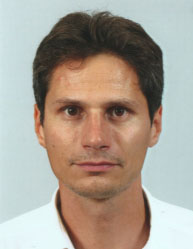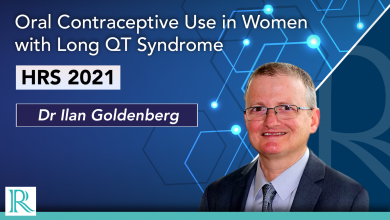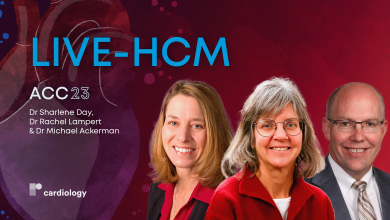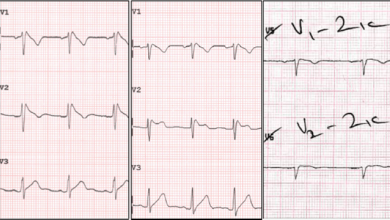Search results
Frédéric Sacher
Job title: Professor
Author
Author(s):
Ilan Goldenberg
Added:
2 years ago
In this video, Dr Ilan Goldenberg (University of Rochester Medical Center, Rochester, NY, US) discusses the potential risk of cardiac events in women with congenital long QT syndrome (LQTS) associated with contraceptive use in this cohort.
Questions:
1. Please remind us of the aim, study design and endpoints?
2. What were your key findings?
3. How should your findings impact practice and…
View more
Author(s):
Rachel Lampert
,
Michael Ackerman
,
Sharlene Day
Added:
1 year ago
ACC.23/WCC—We are joined onsite by principal investigator Dr Rachel Lampert (Yale School of Medicine, US), Dr Sharlene Day (Penn Medicine, US) and Dr Michael Ackerman (Mayo Clinic, US) to discuss the late-breaking findings from the LIVE-HCM Study. In this trial, investigators aimed to determine the effects of lifestyle and exercise on the well-being of patients with hypertrophic cardiomyopathy …
View more
Sudden Cardiac Death in Athletes
Author(s):
Andrew D’Silva
,
Michael Papadakis
Added:
3 years ago
Article
Author(s):
Derk Jan ten Harkel
,
Maarten Witsenburg
Added:
3 years ago
In recent years, there have been many advances in the diagnosis and treatment of arrhythmias in children. This paper focuses on some of these advances, and gives an overview of relevant studies. Special attention is paid to technological advances that have created the possibility of using devices like an implantable loop recorder or an implantable cardioverter-defibrillator (ICD) in even small…
View more
Author(s):
Alessandro Marinelli
,
Mario Luzi
,
Alessandro Capucci
Added:
3 years ago
Several randomised controlled trials (RCTs) have proven the efficacy of the implantable cardioverter-defibrillator (ICD) in preventing sudden cardiac death (SCD) in patients with advanced systolic heart failure (HF) and reduced left ventricular ejection fraction (LVEF).1–3 ICD therapy proved to be efficacious also in other conditions at high risk for arrhythmic death such as familial SCD…
View more
Author(s):
Felix Gramley
,
Andreas Goette
Added:
3 years ago
Heart disease is the leading cause of death in the US, with sudden cardiac death (SCD) accounting for most of these fatalities.1 Considering the growing prevalence of coronary heart disease and cardiomyopathies (see Figure 1) that, taken together, cause most SCDs, effective treatments are needed. Since by definition SCD is ‘sudden’ (generally accepted to be within one hour after onset of symptoms…
View more
Author(s):
Afik D Snir
,
Hariharan Raju
Added:
3 years ago
Brugada syndrome was first described in 1993 in a case series of eight patients with recurrent polymorphic ventricular tachycardia (VT) and stereotypical electrographic characteristics in the context of a structurally normal heart.1 Since then, the syndrome has been extensively studied and recognised worldwide as a major cause of sudden cardiac death (SCD) in otherwise healthy patients.2 Recent…
View more













